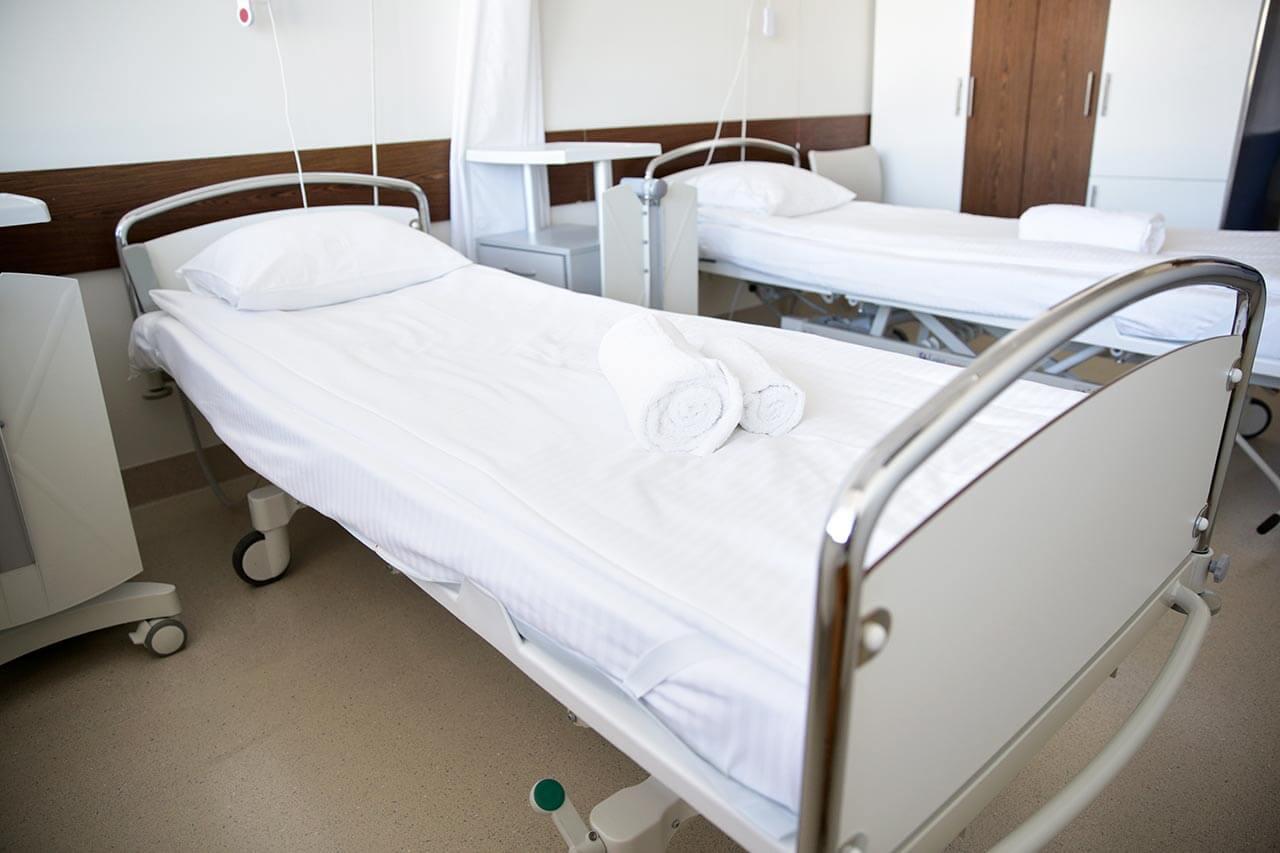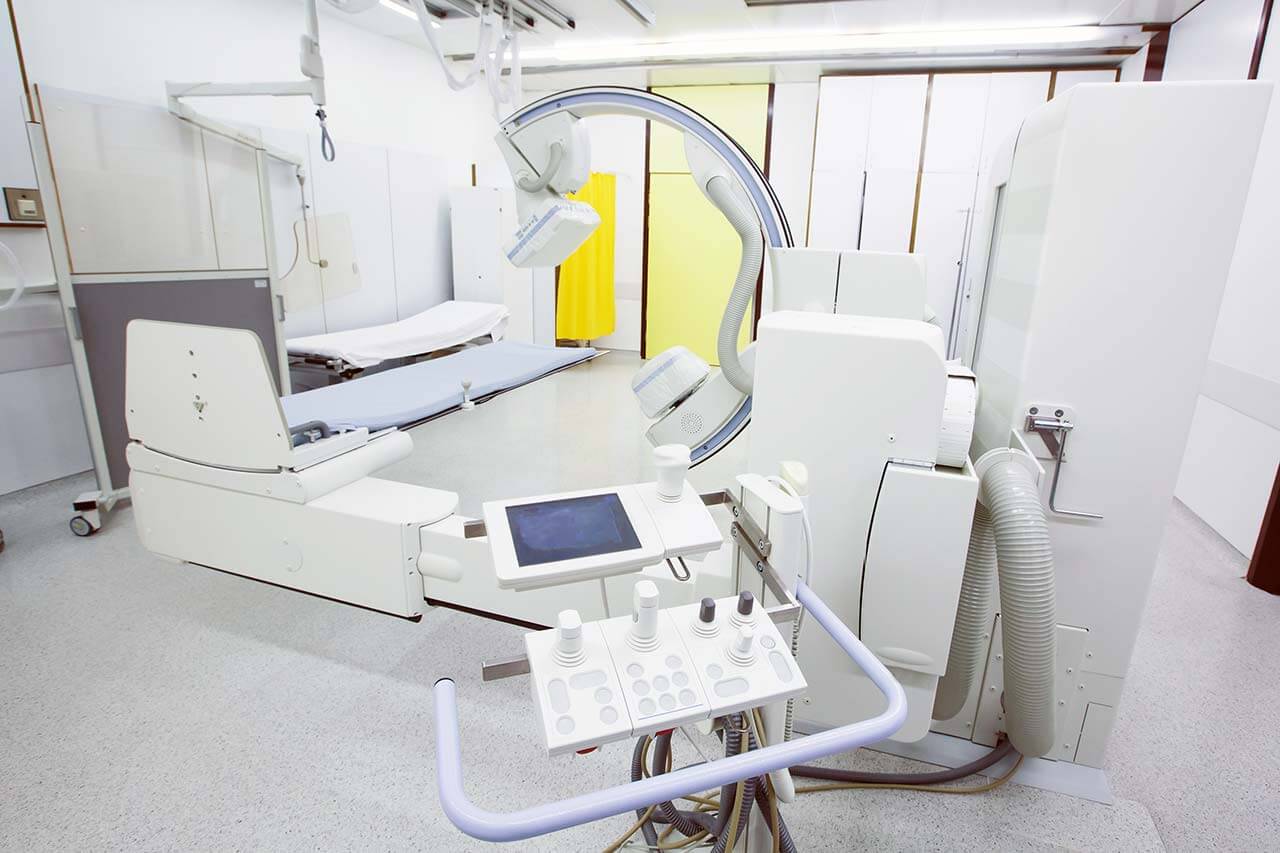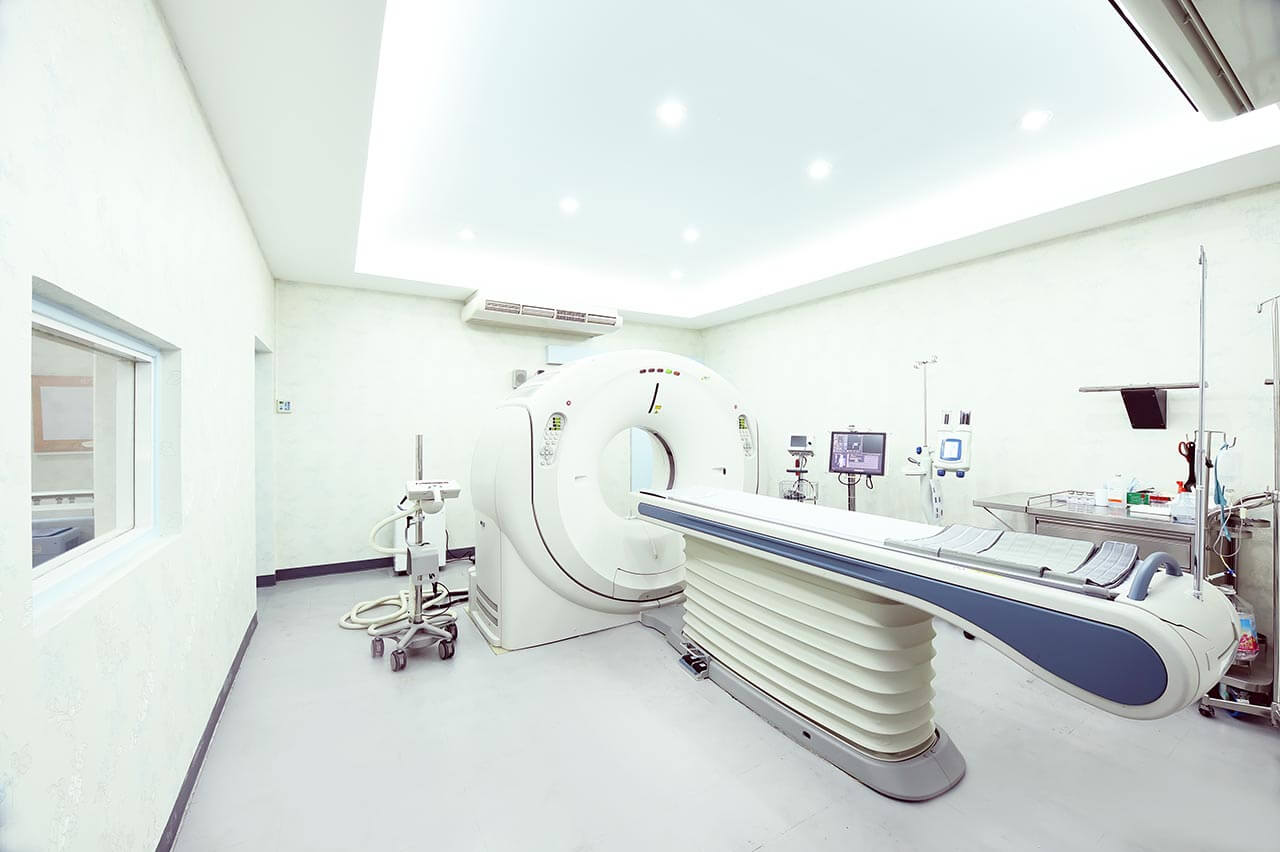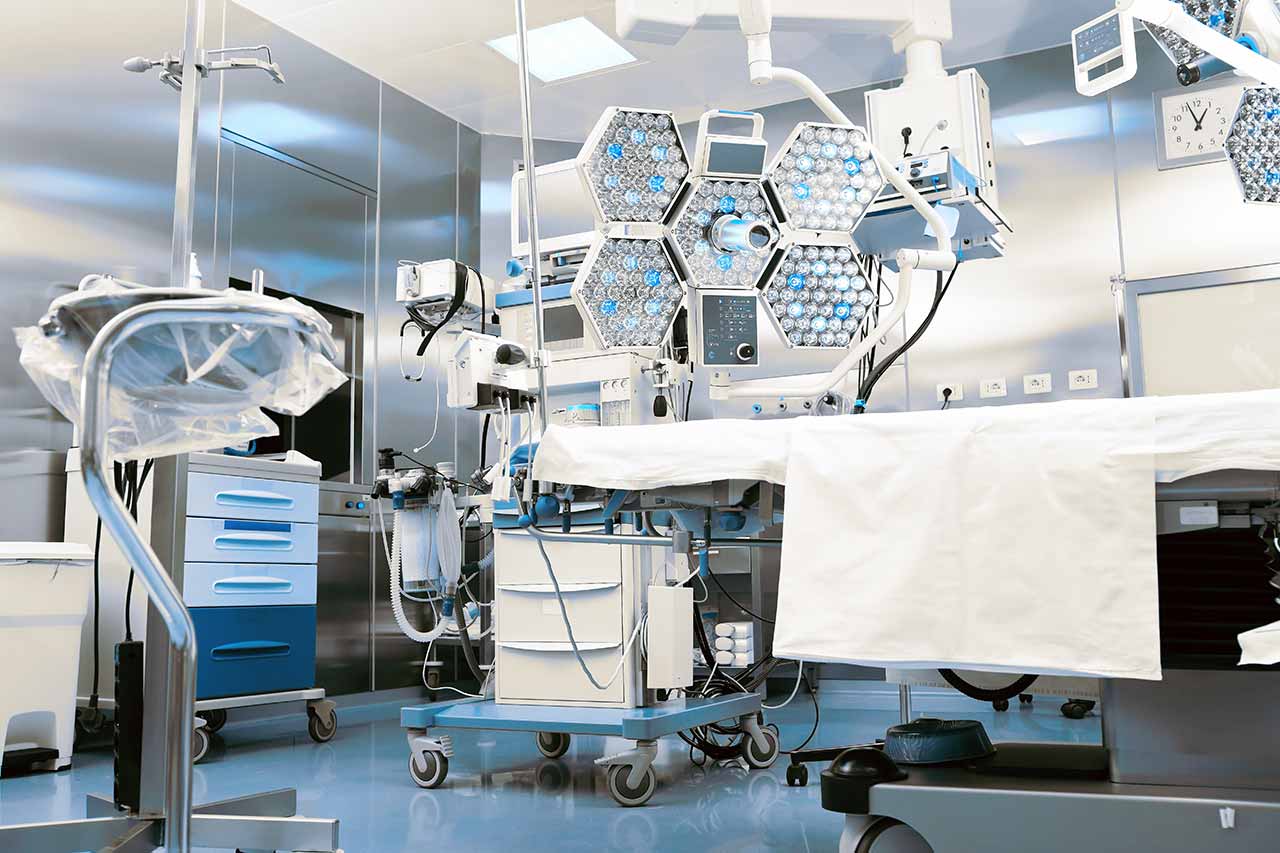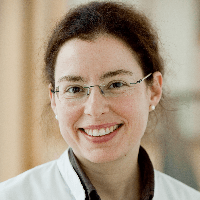
The program includes:
- Initial presentation in the clinic
- clinical history taking
- review of medical records
- physical examination
- laboratory tests:
- complete blood count
- general urine analysis
- biochemical analysis of blood
- inflammation indicators (CRP, ESR)
- indicators blood coagulation
- hormonal examination (estrogen, progesterone,
prolactin, DHEA, FSH, LH
- gynecological examination (on indication):
- colposcopy
- vaginal swab
- pelvic ultrasound
- transvaginal ultrasound
- breast ultrasound
- ultrasound examination: pelvis, abdomen, thyroid
- consultation of related specialists
- symptomatic specific treatment
- the cost of essential medicines and materials
- nursing services
- control examinations
- full hospital accommodation
- developing of further guidance
Required documents
- Medical records
Service
You may also book:
 BookingHealth Price from:
BookingHealth Price from:
About the department
The Department of Endocrinology and Metabolic Disorders at the University Hospital Essen offers the full range of modern diagnostics and treatment of diseases of the endocrine glands and metabolic disorders. One of the department’s key focuses is the treatment of diabetes mellitus. The department uses both classic and the very latest treatment methods, which have proven themselves internationally. In addition to clinical activities, the department's specialists pay due attention to the research activities. The department is one of the largest German centers for the study of endocrine tumors, particularly thyroid cancer and hormonally active pituitary tumors. The department is headed by Prof. Dr. Dr. med. Dagmar Führer.
The department's doctors are proud of the outstanding results in the treatment of type 1 and 2 diabetes mellitus, as well as symptomatic types of diabetes, for example, after liver, kidney, heart or lung transplantation, after removal of the pancreas. In addition, the department’s tasks include the medical care for women with gestational diabetes and patients with diabetes mellitus due to cystic fibrosis. There are provided all types of oral hypoglycemic therapy and insulin therapy, including pump therapy. The basic medical services are complemented by individual and group training for patients with diabetes mellitus, as well as nutrition counseling. The high competence of the department in this field is confirmed by the certification of the German Diabetes Association.
Also, an important clinical focus of the department is the diagnostics and treatment of thyroid diseases. The department annually treats more than 1,000 patients with thyroid disorders and has an international reputation in the treatment of rare thyroid diseases. Of particular interest to the department's specialists is the treatment of thyroid cancer, including the advanced stages of pathology (papillary and follicular thyroid cancer, poorly differentiated thyroid cancer and anaplastic thyroid cancer). The treatment is provided in collaboration with the Comprehensive Cancer Center and the Neuroendocrine Cancer Center, which is part of the West German Cancer Centre. Thus, the patient has access to the very latest treatments and receives interdisciplinary medical care.
The department’s clinical focuses include:
- Diagnostics and treatment of tumors of the thyroid, pituitary, adrenal glands, parathyroid glands and neuroendocrine tumors of the gastrointestinal tract and pancreas (in collaboration with the Endocrine Tumour Center at West German Cancer Center)
- Diagnostics and treatment of thyroid diseases (for example, nodular goiter, endocrine ophthalmopathy, thyroid cancer), as well as rare thyroid abnormalities (for example, thyroid hormone resistance syndrome)
- Diagnostics and treatment of type 1 and 2 diabetes mellitus, gestational diabetes, symptomatic diabetes
- Diagnostics and treatment of bone tissue metabolism disorders
- Diagnostics and treatment of reproductive dysfunction and abnormal levels of sex hormones
- Transplant endocrinology and diabetology
- Diagnostics and treatment of patients with congenital endocrine diseases in adulthood
- Diagnostics and treatment of genetic syndromes affecting the endocrine organs
- Diagnostics and treatment of endocrine arterial hypertension
- Diagnostics and treatment of primary, secondary osteoporosis
- Diagnostics and treatment of polycystic ovary syndrome
- Other diagnostic and therapeutic options
Curriculum vitae
Professional Activities
- Since April 1, 2018 Vice-Rector on Research Activities, Supervision of Young Researchers and Transfer of Experience, University of Duisburg-Essen.
- Since June 1, 2011 Head of the Department of Endocrinology and Metabolic Disorders, as well as the Head of the Central Research Teaching Laboratory, University Hospital Essen.
- 2008 - 2011 Deputy Head of the Department of Endocrinology and Nephrology, University Hospital Leipzig.
- 2006 - 2011 Leading Senior Physician and Head of the Laboratory for Molecular Diagnostics of the Department of Internal Medicine III, University Hospital Leipzig.
- 2009 Subspecialization in Andrology.
- 2007 Subspecialization in Diabetology (German Diabetes Association).
- 2004 Subspecialization in Endocrinology.
- 2003 Board certification in Internal Medicine, Senior Physician in the Department of Internal Medicine III, University Hospital Leipzig.
- 1995 - 1998 / 2001 - 2003 Professional Training in Internal Medicine, University Hospital Leipzig.
- 1988 - 1995 Study of Human Medicine, Justus Liebig University Giessen, Trinity College Dublin, University College London.
Scientific Activities
- 2009 Invitation to the position of W3 Professor, Department of Internal Medicine/Endocrinology, University of Duisburg-Essen.
- 2006 Extraordinary Professor at the University of Leipzig.
- 2001 - 2004 Head of the Emmy Noether Research Group of the German Research Foundation, University of Leipzig.
- 2004 Habilitation and Venia Legendi in Internal Medicine, University of Leipzig.
- 2002 Doctoral thesis defense, University of Wales College of Medicine, Cardiff, UK.
- 1998 - 2000 Post-doctorate, University of Wales College of Medicine, Cardiff, UK.
- 1996 Doctoral Degree (doctoral thesis defense with honors).
Scientific Positions and Achievements
- Since 2018 Representative of the Thyroid Section of the German Society of Endocrinology (DGE).
- Since 2016, Mildred Scheel Lectureship Committee, German Cancer Society.
- Since 2016 Representative of the European Reference Network Endo-ERN and EURACAN (G4, rare endocrine cancer).
- Since 2016 Council Member of the Medical Faculty of the University of Duisburg-Essen.
- Since 2015 Board Member of the Society of Endocrinology and Diabetology in North Rhine-Westphalia.
- 2013 - 2017 Committee of the German Society of Internal Medicine (DGIM).
- Since 2013 Chairman of the European Thyroid Association Cancer Research Network (ETA-CRN).
- Since 2012 Representative and Coordinator of the Priority Program of the German Research Foundation 1629 THYROID TRANS ACT (with Prof. Dr. K. Brix, Bremen and Prof Dr. H. Biebermann, Berlin), www.thyroidtransact.de.
- Since 2011 Head of DCP09 Research of Endocrine Tumors of the West German Cancer Center Essen, and since 2015 Head of the Center for Endocrine Tumors of the West German Cancer Center Essen in collaboration with ENETS Center of Excellence.
- 2008 - 2014 Vice-President of the German Society of Endocrinology (DGE).
- 2008 - 2011 Mentor, Educational Foundation of the German People (Studienstiftung des deutschen Volkes), University of Leipzig.
- Since 2008 Advisory Board Member of the Thyroid Section, German Society of Endocrinology.
- 2007 - 2009 EliMED Program Curator, University of Leipzig.
Awards and Honors
- 2001 Merck von Basedow Prize, German Society of Endocrinology.
- 2002 Organon Clinical Thyroidology Award, European Thyroid Association.
- 1991 - 1995/1998 - 2001 Scholarship of the German Educational Foundation (Studienstiftung des deutschen Volkes).
- 2000 Reisenberg Young Investigator Award.
- 1999 Postgraduate Award, University of Wales College of Medicine.
- 1997 Rolf Emmrich Prize of the Saxon Society of Internal Medicine.
Photo of the doctor: (c) Universitätsklinikum Essen
About hospital
According to the authoritative Focus magazine the University Hospital Essen ranks among the top German hospitals!
With 27 specialized departments and 24 institutes, the hospital in Germany is a maximum care medical facility. The hospital has 1,300 beds for inpatient treatment. A highly qualified medical team of more than 6,000 employees takes care of the health of patients. All the specialists give preference to an interdisciplinary medical care, which guarantees a comprehensive treatment taking into account the smallest aspects of a particular pathology. The hospital annually diagnoses and treats more than 50,000 inpatients and about 195,000 outpatients, which testifies to the prestige of the medical institution and the highest quality of treatment in Germany.
The hospital presents all the modern medical fields. Nevertheless, special attention should be given to the following major fields of specialization as oncology, transplantology and cardiology, as well as research activities in the field of immunology, infectology and translational examinations of pathologies of the nervous system and behavioral disorders.
Established on the basis of the standard American model of Comprehensive Cancer Centers, the West German Cancer Center (WTZ) in Essen was recognized as the best medical facility of this kind in Germany in 2009. Nowadays, the center holds leading positions both on the national and international medical markets. The basis of its successful clinical practice is the use of very latest treatment methods and an interdisciplinary approach to each clinical case. The West German Organ Transplant Centre (WZO) is also recognized as one of the best in the country and one of the few in Germany, which specializes in the transplantation of all vital organs, such as kidney, liver, pancreas, heart and lungs. Special attention is paid to kidney and liver transplantation.
The hospital in Germany is proud of its high-tech medical equipment, experienced and competent staff, productive research activities, which allow to guarantee the accurate diagnostics and effective treatment, including rare and very complex clinical cases for every patient. Consequently, the hospital is considered a perfect embodiment of high-quality treatment in Germany.
Photo: (c) depositphotos
Accommodation in hospital
Patients rooms
The patients of the University Hospital Essen live in comfortable rooms designed in bright colors. The standard room furnishing includes an automatically adjustable bed, a bedside table, a personal wardrobe, a personal call button with a built-in light panel, a telephone, a TV and a radio. The Internet access is available at an additional cost.
Meals and Menus
The patients of the hospital are offered a daily choice of three menus. The patients are also offered alternative types of menus, if their religion requires the exclusion of certain foods. If you follow a certain diet or suffer from food intolerance, you will be provided with a menu of your choice by discussing it with your attending physician in advance. The hospital also houses a bistro and a cafe, where one can have a tasty snack, enjoy hot and cold drinks.
Further details
Standard rooms include:
Accompanying person
There are a few types of hotels for the accompanying persons, who want to stay near the hospital. The hotel of the Essen University Hospital offers apartments on the first floor of the nursing high-rise building. The DRK nursing also offers single and double rooms.
The hotel in Grugapark is available for the parents, whose children stay in the hospital. The parents of children with cancer can also stay here. Moreover, The Department of Pediatrics offers its rooms for parents.
